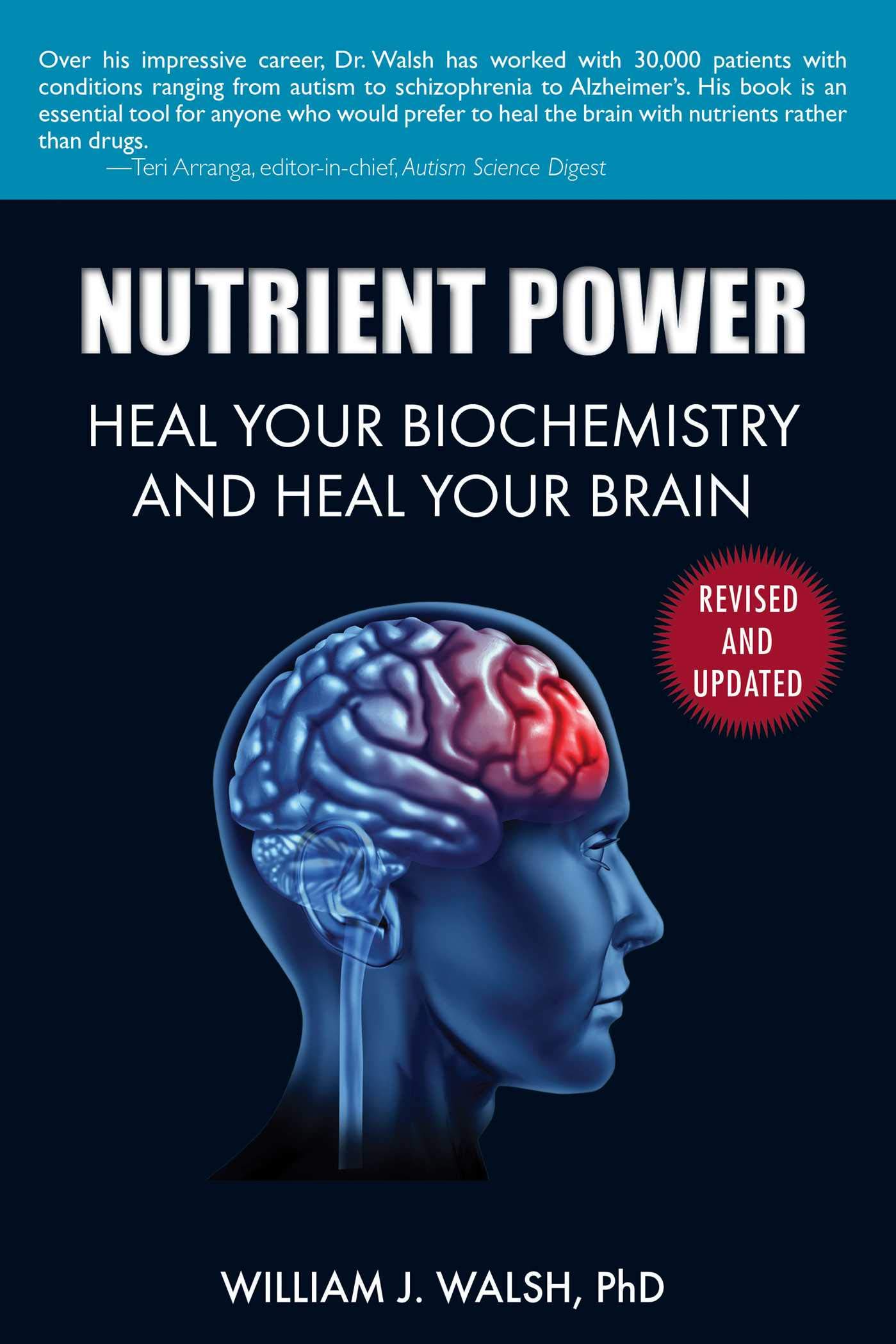Depression can often be traced back to underlying biochemical imbalances. Dr. William Walsh’s research identifies specific "Five Biotypes of Depression," each associated with distinct nutrient imbalances. By targeting these imbalances, many individuals may find relief from depressive symptoms without relying solely on traditional medications. Here, we’ll explore key biotypes relevant to natural depression treatment: copper overload, zinc deficiency, methylation imbalance, pyroluria, and toxic overload.
Biotype 1: Copper Overload (Zinc Deficiency)
Key Concepts: Zinc Deficiency, Copper Overload, Copper and Anxiety, Estrogen Dominance, Postpartum Depression
Copper overload, often tied to zinc deficiency, plays a significant role in depression and anxiety. Zinc is essential for balancing copper levels, but factors like pyroluria, poor gut health, or inadequate dietary zinc can contribute to deficiency.
Copper overload frequently arises from estrogen dominance, which can be influenced by obesity, hormonal birth control (oral contraceptives and IUDs), well water exposure, and genetics. Genetic predispositions, such as low production of metallothioneins (proteins that bind to metals), may hinder the body’s ability to rid itself of excess copper. This imbalance is especially common in conditions like postpartum depression, where hormonal shifts exacerbate copper retention.
Testing for copper overload includes checking copper/zinc ratios and ceruloplasmin levels. Correcting these imbalances can significantly reduce anxiety and improve mental clarity.
- Symptoms of Copper Overload: Anxiety, irritability, emotional sensitivity, brain fog, insomnia, hormonal imbalances, social withdrawal, and mood swings. Copper overload may be exacerbated by stress, certain medications, and diet.
Natural treatment for copper overload involves zinc supplementation, dietary changes, and hormonal balance support.
Biotype 2 & 3: Methylation Imbalance (Overmethylation and Undermethylation)
Key Concepts: Overmethylation, Undermethylation, SSRI Response, SERT and DERT Transport Proteins, Methylation Status Testing
Methylation is a biochemical process crucial for neurotransmitter regulation, gene expression, and mood stability. Dr. Walsh identifies two methylation-related biotypes that impact depression: overmethylation and undermethylation. Methylation imbalances affect the function of serotonin and dopamine transport proteins (SERT and DERT), which play vital roles in mood regulation.
Overmethylation: Individuals with overmethylation tend to have a deficiency in cellular output, which affects neurotransmitter reuptake proteins (SERT and DERT), leading to lower sensitivity to serotonin. These individuals often respond poorly to SSRIs due to this reduced reuptake. Instead, they may benefit from nutrients like folate and niacin.
- Symptoms of Overmethylation: High anxiety, sensory sensitivity, nervous energy, mood swings, paranoia, sleep disturbances, allergies, and seasonal affective issues.
Undermethylation: People with undermethylation have an excess of SERT and DERT, making them more responsive to SSRIs and other similar medications. However, they often perform better with targeted methylation support, including SAMe, methionine, B12, magnesium, and TMG.
- Symptoms of Undermethylation: Low energy, perfectionism, obsessive thinking, social withdrawal, tendency toward addictive behaviors, high achievement, and need for control.
Testing for methylation status via whole blood histamine or a Plasma Methylation Panel is essential, as symptoms alone are not always reliable indicators. Testing ensures accurate supplementation and avoids adverse effects from incorrect treatments.
Biotype 4: Pyroluria (Related to Zinc Deficiency, B6 Deficiency and Copper Overload)
Key Concepts: Pyroluria, Zinc Deficiency, Copper Imbalance, Nutritional Deficiencies and Depression
Pyroluria is a genetic condition in which the body excretes excessive amounts of zinc and vitamin B6 through urine, leading to a chronic deficiency in these essential nutrients. This deficiency often results in an imbalance between zinc and copper levels, leading to symptoms that exacerbate depression and anxiety.
Those with pyroluria may experience a higher sensitivity to stress and social situations, along with persistent mood swings and difficulty adapting to change. Due to their predisposition to zinc deficiency and copper imbalance, people with pyroluria often benefit from targeted supplementation.
- Symptoms of Pyroluria: High stress sensitivity, mood swings, social anxiety, poor memory, irritability, frequent infections, and joint pain.
Treating pyroluria typically involves zinc and vitamin B6 supplementation, which helps rebalance nutrient levels and reduce mood-related symptoms.
Biotype 5: Toxic Overload
Key Concepts: Toxic Overload, Liver Detox, Kidney Detox, Zinc Supplementation for Detox, SAH and SAMe Metabolite
Toxic overload can impede the body’s detoxification processes, leading to a buildup of harmful substances that affect mental health. In the Walsh Protocol, zinc is a cornerstone for addressing toxic overload because of its role in reducing SAH (S-Adenosylhomocysteine), a toxic metabolite of SAMe breakdown that can impair methylation. High levels of SAH are often seen in undermethylated individuals and can hinder effective detoxification.
For some undermethylators, normal SAMe and methionine levels may still result in poor outcomes due to elevated SAH, which inhibits methylation. Testing SAH levels through a Plasma Methylation Panel can help determine whether SAH should be addressed first, before starting methylation support. Toxic overload can also affect liver and kidney performance, disrupting the body’s natural detoxification pathways.
- Symptoms of Toxic Overload: Brain fog, chronic fatigue, poor stress tolerance, irritability, digestive issues, frequent infections, gut dysbiosis, elevated liver and kidney markers, obesity, and heightened sensitivity to environmental toxins.
Dr. Dave’s approach involves supporting the liver and kidneys through detoxification protocols alongside zinc supplementation, which enables the body to process toxins more effectively.
Conclusion: Treat Depression Naturally with Nutrient BalanceDr. Walsh’s 'Five Biotypes of Depression' protocol offers a personalized, nutrient-focused approach that addresses the root causes of depressive symptoms. By identifying imbalances in zinc, copper, methylation, and toxins, this method provides a natural pathway for individuals seeking alternatives to conventional medication. Nutrient-based psychiatry allows for tailored treatment strategies that restore balance, reduce symptoms, and support long-term mental well-being.
If you suspect you have one or more of these imbalances, consult with a qualified practitioner to assess your nutrient levels and create a treatment plan aligned with your specific biotype of depression.


I would love to chat with someone about having my 16 year old son tested.
Hi Betsy, send us a message through chat or email and someone will assist you.